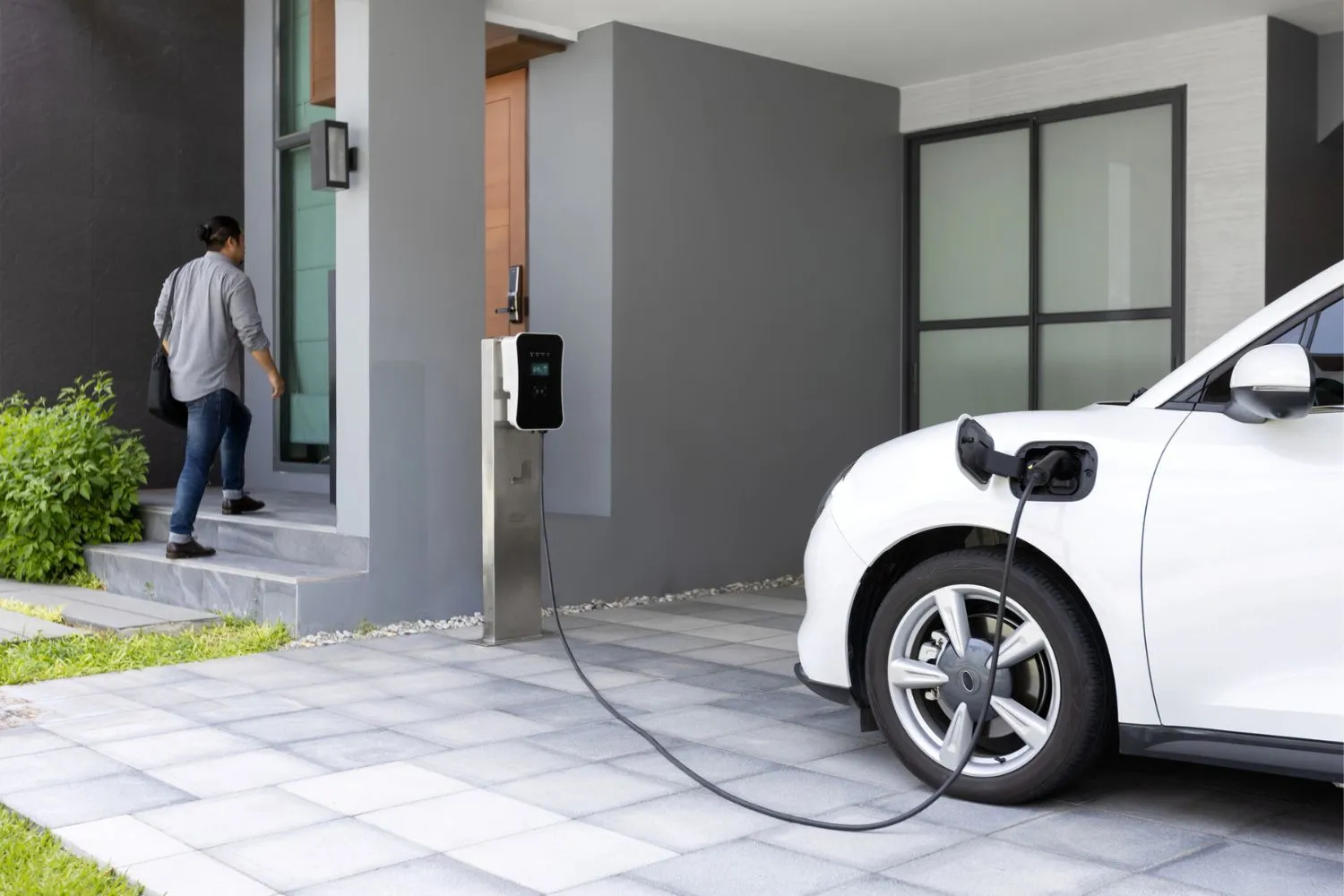The growing popularity of electric vehicles (EVs) has led many people to consider equipping their homes with EV chargers. This added feature not only makes owning an electric car more convenient, but it can also increase the value of your home. To make an informed choice, you need to know how much it costs to install an electric car charger at home. This article takes a closer look at the financial issues involved, such as the cost of a charger, installation costs, possible upgrades, and the benefits of tax credits and rebates.
Choose an Electric Car Charger for Your Home
To calculate the cost of installing an electric car charger in your home, you first need to understand the different types of chargers available. Level 1 chargers use a standard 120-volt outlet and are the most basic. If suitable sockets are already available, they usually do not require additional installation costs. But Level 2 chargers (which require a 240-volt plug) are better suited for home use because they charge faster. The price of a charger varies widely depending on its features, such as charging speed, connectivity, and how popular the name is. Simple models can cost around $300, while high-tech models with smart features can cost more than $800.
Installation Costs and Variables
Installing an electric car charger in your home can cost a lot, and the exact amount depends on many factors. Costs can vary significantly depending on the distance between the charger and the home’s electrical panel. This is because longer distances require more materials and work. If the current electrical system needs to be upgraded to meet the 240-volt needs, it can be expensive. For example, new circuit breakers, more electrical wiring, or an entirely new panel may be needed. Labor costs also vary depending on the difficulty of the job and the rates in the area. Simple systems may cost $200 to $500, but more complex systems that require extensive electrical work or installation outdoors can be more expensive.
Other Things to Consider
Many additional costs can arise when installing an electric vehicle charger. Outdoor setups require weatherproofing to ensure equipment is protected from the elements, which increases costs. Another thing is that if the charger has smart technology, there may be ongoing costs for managing the network or app. Costs for permits and inspections also vary, but must be included in the budget. These rules ensure that the work follows the safety and building regulations of the area.
Maximizing Savings through Incentives
Many incentives can reduce the overall cost of purchasing an electric car charger, which is one of the benefits. Many local and national governments are offering tax breaks, rebates, and other incentives to entice people to buy electric vehicles and help people set up charging stations at home. These financial incentives can go a long way toward the initial cost, so you should learn as much as you can about them and apply for them before beginning installation.
Long-term Benefits and Things to Consider
Aside from price, having an electric car charger in your home can save you money in the long run. Some of these benefits include easier access to charging stations, less reliance on public charging stations, and lower overall vehicle operating costs compared to gasoline-powered vehicles. Having an electric car charger at home can also be a selling point, which can increase the value of your home.
Conclusion
There are many costs and benefits to purchasing an electric car charger for your home. The initial cost may be high, especially if major electrical modifications are required, but the cost savings and ease of use can make it worth it in the long run. If homeowners are considering this change, they should carefully examine their current electrical system, investigate any available incentives, and consider what their long-term vehicle needs are. As more people switch to electric vehicles, having a home charging point is likely to become increasingly useful.
FAQs
1. How much does it cost to purchase a home electric car charger?
Home electric car chargers vary widely in price depending on their features and capabilities. Level 2 chargers are very basic, starting at around $300. More modern chargers with Wi-Fi and faster charging speeds can cost $800 or more.
2. What are the main factors affecting installation costs?
Some important factors include the distance between the electrical panel and the charger, the need for electrical upgrades (such as adding new circuits or upgrading electrical panels), the difficulty of the job, and the cost of labor in the area.
3. Do I need to get a permit to install an electric car charger in my home?
In many cities, you need a pass to install an electric car charger. Obtaining a license costs more or less in different places and has different standards. To find out exactly what you need to do, contact your local building department or professional installer.
4. Can I install my electric car charger?
You can install an electric car charger yourself, but you need to hire a professional electrician. This ensures that the work complies with all local regulations and safety standards. The warranty may also require this.
5. Is there a way to get money to install electric car chargers?
Yes, many countries offer tax breaks, rebates, or other ways to help people pay for and install EV chargers. These benefits vary from place to place and may change over time. So it’s a good idea to find out what’s currently available in your area.
6. How long does it take to install an electric car charger at home?
Depending on the details of the installation, the time required can vary significantly. Simple installations may only take a few hours, but more complex installations that require extensive electrical work can take a full day or more.
